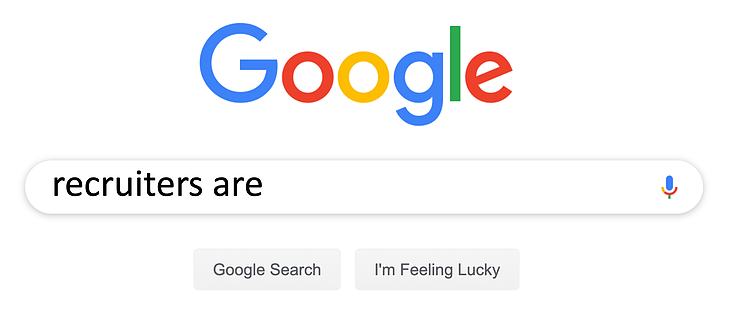As much as I love reading articles that start with a nonsense statement like “Webster’s dictionary defines X as Y”, the phrase, “No one ever got fired for choosing IBM” seems relevant to me right about now.
I mean, Big Blue has done a lot of things right.
Let’s pull on that thread a little.
As a start-up founder transitioning to become a scale-up C level, people are paramount.
After months and months of sixty-hour weeks, countless investor pitches, answering the same six questions from venture capitalists, and endless backbreaking days of digging proverbial ditches, you’ve finally received a cheque from a VC with a whole lot of zeros on it.
Are you excited?
Sure, maybe… but I suspect you may also be starting to think “Oh wow, shit just got real!” A whole new sense of responsibility (and stress), has come over you. It is time to deliver that dream you’ve been trying to sell, for what seems like an eternity.
All you have to do now is make it happen.
That sounds heavy, but it’s not all on your shoulders.
Local news outlets, niche virtual communities, and bloggers pay close attention to the VC wire. They will start making a lot of noise about your early success online. You’ll get a pile of free press, and you’ll start to receive job applications from big corporate seasoned veterans that didn’t know (or care) about your existence until now. They are drawn to the idea of your company being your industry’s next unicorn.
As a C level of a blossoming company, it’s easy to get sucked into the circus of this scenario, but it’s vitally important to keep one thing in the forefront of your mind as you scale.
Don’t let getting sucked into the whirlwind of early success cause you to suck at hiring.
I by no means want to trash anyone that finds themselves working for big corporations in any way shape or form, but the following is a summary of themes that I have noticed over the past sixteen years of my experience in the recruiting world. What I’m about to provide isn’t any attempt at writing gospel in stone…
There are three things I feel that scale-up C levels should consider when interviewing candidates from big corporate.
Here it goes:
Candidates from big corporate are indoor cats. Before you get too deep in the selection process, make sure they understand that they’re going to have to become outdoor cats if they want to join your team.
I have a cat. Her name is Princess, and she is adorable. She eats real food that had parents, and she drinks fresh water from a fountain that looks like a cute little potted flower. She sleeps sixteen to eighteen hours a day on one of her many fluffy beds. She gets ‘Temptations’ treats after her daily brushings. Her nails are clipped weekly (I call this process a “Kitty-cure”), and ultimately, if anyone says anything to challenge how adorable she is, I’ll start a fistfight with them on the spot without question.
Princess is an indoor cat. I’m thoroughly wrapped around her cute little finger, and I provide her with absolutely everything she could possibly ever need, and more.
Outdoor cats, on the other hand, live by their wits, eat what they kill, and sleep in the rain.
As you’re transitioning from start-up to scale-up, you don’t have the luxury of sleeping in a fluffy bed all day. You most certainly don’t have someone dedicated to delivering you yummy snacks, rubbing your belly, or clipping your nails. Most importantly- you don’t have all of the unlimited resources available to your employees that conglomerates have.
Big corporate provides all of these things to their employees because they want their employees to be productive, stay in their lane, and stay loyal. It’s tough for anyone to give up their entitlement once they’ve lived in a remarkably privileged professional environment for five-plus years.
You may not want to agree with me in practice. I’m sure some of you are screaming at the screen, “C’mon, now. People can change!”
Spoiler alert:
No, they can’t.
We’re habitual creatures, us humans.
Once you provide us with something, it’s remarkably hard to take it away and expect the average person to react positively.
If you don’t believe me, video yourself the next time you lose WIFI. I guarantee you’ll see a monstrous version of yourself within an hour.
Long story short…
When interviewing candidates from big corporate, don’t let the allure of a sexy resume with big company names on it, cloud your sense of judgment.
Challenge these candidates to explain how they will perform at their best with fewer resources, less support, and more ambiguity.
Challenge them to show you that they can demonstrate that although they’ve been part of the Borg collective, they are capable of independent thought.
Challenge them to demonstrate that they are not only comfortable sleeping in the rain, but they are energized by the idea of sleeping under the stars.
The indoor cats that aren’t capable of making the transition will show themselves very quickly with their generic responses. The indoor cats that are capable will lean in with enthusiasm, and provide explicit details of their recent camping trip.
Speaking of trips…
Where you are today versus where you want to be in three years, are likely two VERY different places. It’s more important to hire for the outcomes you need to deliver NOW, versus three years from now.
Yes, I realize your investor pitch deck is still burned into your brain, and you likely still have your timing down to the second, but hold on a minute.
Pitching to potential investors ,and pitching your company to potential employees are two wildly different scenarios and should be handled much differently.
As you are interviewing big corporate candidates you may feel the urge to sell the vision of the market opportunity in front of you, and your plan to claim your unfair share of it, because that’s ultimately what landed you the cheque from the VC in the first place.
That makes sense.
Here’s the thing:
Candidates from big corporate are accustomed to seeing inspirational PowerPoint slides during quarterly all-staffs and can smell bullshit from a mile away.
What’s the end result if their bullshitometer sounds off?
Nortel nods (if you’re reading this from outside of Ottawa, think of a “Nortel nod” as a faceless big corporate employee not remotely listening to a company directive, but agreeing to it – and not delivering on it – by nodding) and wasted conversations.
Instead of pushing the ideal future state of your business to win over potential future big corporate employees, own your existing state. Hire for the skills sets that will provide the outcomes that you need to deliver NOW, and in the next six months – not the outcomes that you may need to deliver twelve quarters into the future.
So, what’s the right play here while interviewing candidates from big corporate?
Easy.
Don’t get lost in the tapestry of the massive projects they’ve played a minor role in delivering for big corporate.
Hammer in on specific, relevant projects in which they delivered clear outcomes, within a set timeline that is relevant to your organization’s cadence, AND with a limited set of resources.
That’s going to be the most telling to their potential success in your environment – which is much less forgiving, more visible, and has far less room for error.
Lots of big fish live great lives in the ocean and never have to worry about getting gobbled up by a shark. If you put a fully-grown tuna in your fifty-gallon tank however, the only one that’s going to benefit from that is your cat.
Which brings me to my final observation (and I’m pretty sure I’m all out of cat analogies) …
Your overall compensation package is not likely going to compete with big corporate’s total reward strategy, so address that upfront in your selection process.
I feel for you.
Your idea is a trillion-dollar idea and your early indicators are showing hockey stick growth, so you’re basically a best kept secret and everyone should want to join your team.
Not so fast.
You may have an employee wellness strategy, you may provide snacks or some sort of fitness benefit to your team, but the reality is that you don’t likely have an RRSP or 401(k) matching program. You don’t have the cash flow to make dreams come true every other Thursday, and you don’t provide a free ride for a family of five to have dental check-ups every six months, let alone cover orthodontics to pre-teens.
I’m all for aiming high, but lots of candidates from big corporate have kids, and Lisa needs braces.
I’m not saying that you shouldn’t hire peeps from big corporate, or that you shouldn’t hire family-centric professionals.
What I am saying, however, is that adulting and family life costs money – lots of it – and your future employees can’t pay their day to day bills with your organization’s potential.
If you offer a stock option plan, great.
If you offer equity, fantastic!
Don’t oversell the present-day value of either, because you’re going to tie both to some sort of vesting period anyhow. Both are literally worth nothing on the candidate’s first day with your team, and they are taking on the risk of giving up what they have for what you may provide in the future, financially.
When interviewing candidates from big corporate, don’t let yourself focus on selling the dream of what may come.
Be transparent with the gross differences of big corporate’s balance sheet versus yours.
Challenge them to explain why taking on the financial risk of joining your team make sense to them and their family.
Be upfront with them by telling them that you’re not going to get sucked into a bidding war against big corporate, because you’re never going to win on day one cash comp versus the mothership. Unless big corporate is sucking away at your potential hire’s soul and they actually want to love what they do
Using this strategy, you’re going to turn away lots of incredible people, but that’s OK.
I’d love to drive a Ferrari, but I’m too bloody tall, and my feet are too big for the pedals.
Not every big corporate candidate is going to be your organization’s Cinderella, so don’t feel bad if you break a few crystal slippers.
If it’s true love and meant to be, the slipper will fit just fine and you won’t have to worry about cleaning up the giant rotting pumpkin in your parking lot in three weeks.
Scaling a business is a lot like going through puberty.
It’s a period of rapid change. Your emotions will run hot. Suddenly what used to be normal won’t make sense anymore, and you may not recognize yourself in the mirror.
That’s OK.
That’s all part of the journey of growing up from an idea into a fully-baked, scaling organization.
Even though you have shouldered the load on your own, and with a close circle of others up until this point, it’s now time to surround yourself with people that have been on this journey before, crushed it, and have the T-shirt to prove it.
Sure, big corporate candidates may be programmed to be a little too soft for your liking, are a little risk-averse in comparison to your organizational dynamic, and may come with a heavy price tag, but at this stage what you really need to deliver to your stakeholders is the outcome. You can’t do that by only hiring promising fresh grads that are sponges for knowledge but have no idea how to dig a ditch.
You need to execute. To do so, you need to bring experienced and qualified people into your business that believe in your company’s future within the context of your present state so much that they want to bring their own shovel on day one.
It’s a lot of work to pull this off, but if you were willing to put in the blood, sweat, and tears that got you this far, you’re likely smart enough to know there are people out there that can help you pull your hiring program together.
Hit us up if you need a hand.
We like dog people too.
![3 things scale-up C-levels should consider when interviewing candidates from big corporate [Copy 22036819]](https://www.pivotandedge.com/wp-content/uploads/2021/03/3-things-scale-up-C-levels-should-consider-when-interviewing-candidates-from-big-corporate-Copy-22036819.jpg)






